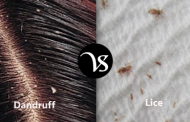 Ownership:
Ownership:
Ownership is to determine who has certain rights and duties over the property. One can lose the ownership by selling, exchanging or providing as a gift. Ownership is self-propagating in that the owner of any property will also own the economic benefits of that property.
Possession:
Possession is the control that a person intentionally exercises towards a thing. Possession is one of the important concepts in property law. There are three related and overlapping but not identical legal concepts: possession, right of possession and ownership.
Differences:
| Basis | Ownership | Possession |
|---|---|---|
| Definition (www.oxforddictionaries.com) |
The act, state, or right of possessing something. | The state of having, owning, or controlling something. |
| Synonyms | Partnership, purchase, takeover, control, holding | Dominion, occupancy, retention, custody, tenancy |
| Antonyms | Renting, whole and lease | Want, lack and need |
| Types | Its types are:
|
Its types are:
|
| Word origin | It was originated in between 1575-85; owner + -ship. | It was originated in between 1300-50; Middle English < Latin possessiōn- (stem of possessiō) occupancy, act of occupying, equivalent to possess (us), past participle of possidēre to have in one’s control, occupy. |
| Signify | Ownership signifies permanence. | Possession is mostly temporary. |
| Mean | Ownership means the name in the title deed. | Actual possession means physical control of a thing. |
| Guarantee | Ownership is guarantee of the law. | Possession is guarantee of the facts. |
| Requires | Ownership does not require possession. | Power and intention to control a thing is important in the concept of possession. |
| Pronunciation |
|
|
| Example in Sentence |
|
|





